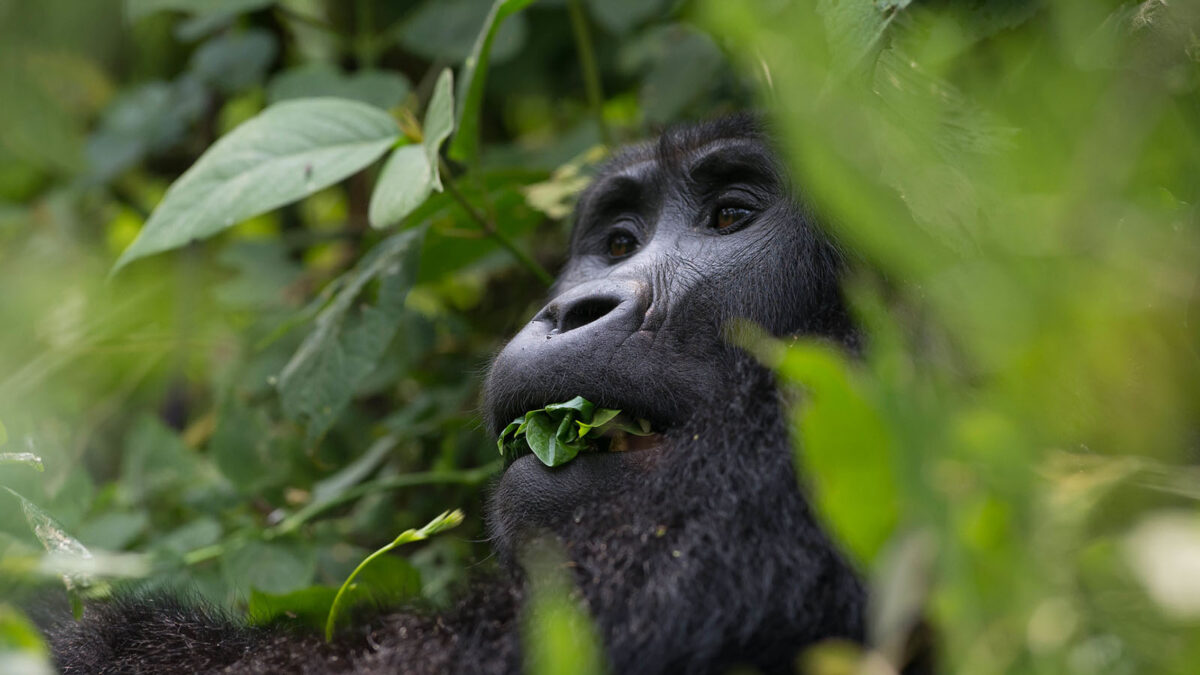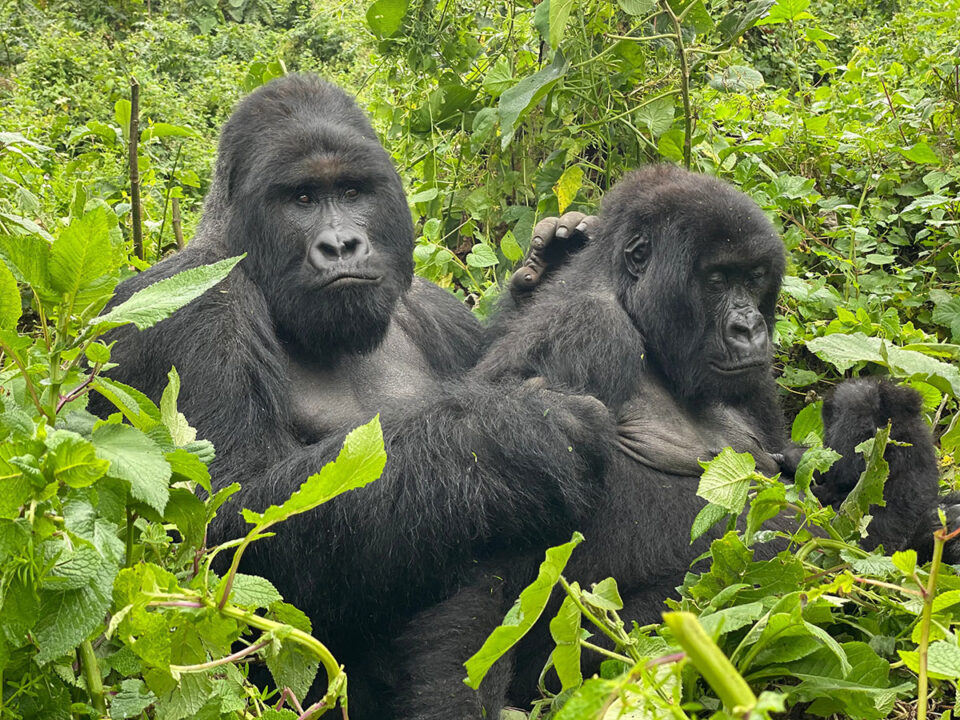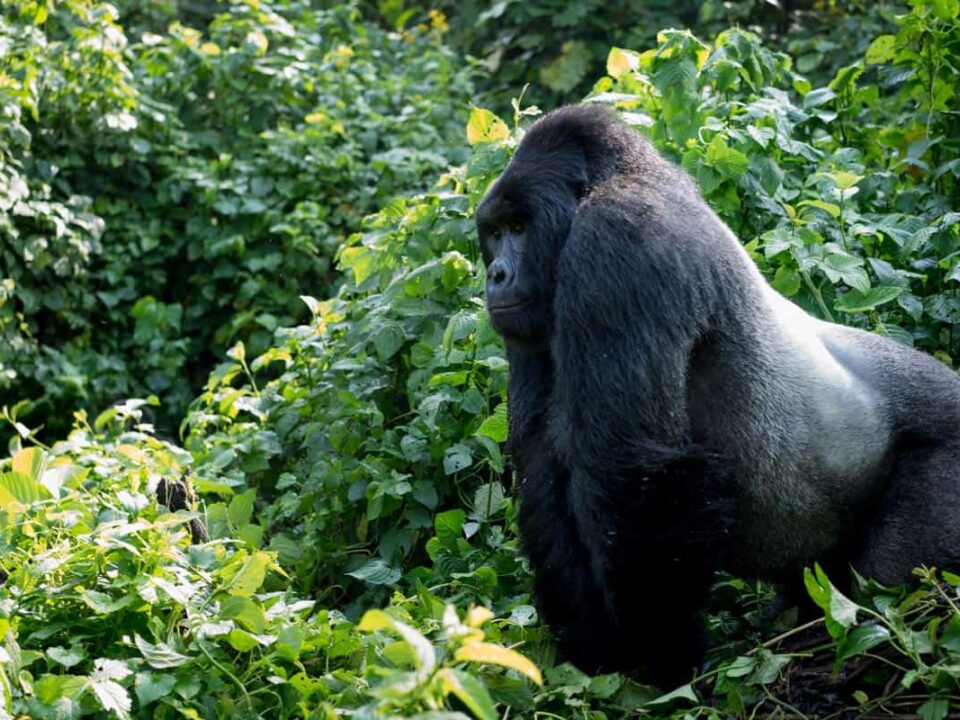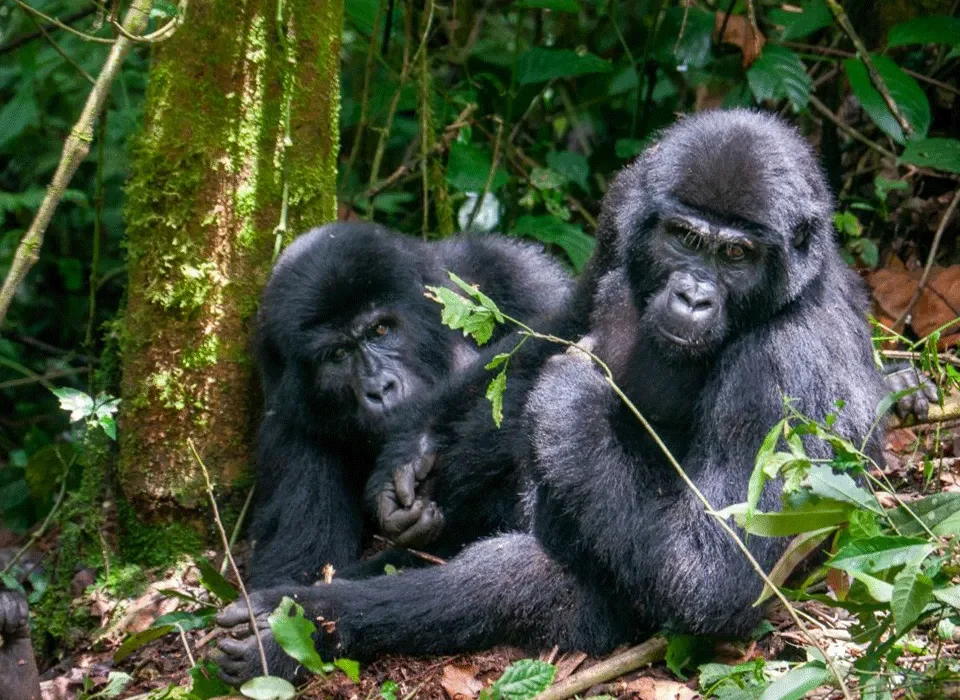What May Stop you from Seeing/ Trekking Mountain Gorillas in Uganda, Rwanda and Congo

Why Uganda Gorilla Permits are Cheaper Compared to Rwanda
January 2, 2023
Frequently Asked Questions About Chimpanzee Habituation Experience (FAQs)
January 2, 2023What may stop you from seeing/ trekking Mountain Gorillas in Uganda, Rwanda and Congo
Mountain gorilla trekking is only possible in three countries: Uganda, Rwanda, and the Democratic Republic of Congo. However, even if you are able to secure a gorilla permit, there may be other factors that prevent you from observing these animals in their natural habitat.
On the day of your trek, there is a 99% chance that you will see mountain gorillas in the wild, so you can feel confident that you will get value for your money.
The history of gorilla trekking began with American philanthropist Dian Fossey, who recognized the need to bring humans close to mountain gorillas in order to conserve these animals, which were on the brink of extinction. The conservation of mountain gorillas is costly, and the funds generated from the sale of gorilla permits help to support this important work.
Tragically, Dian Fossey was brutally murdered in 1985 by unknown assailants. Her grave is located among the gorillas, and while in Rwanda, you can take a trek to visit her grave. Despite her untimely death, her efforts to conserve gorillas continue to this day.
While gorilla trekking is open to humans, there are certain standards set by the International Union for Conservation of Nature that may prevent you from accessing the gorillas. The well-being of the mountain gorillas is of the utmost importance, as their population has steadily increased to around 1000 individuals. The success of their conservation efforts is cause for celebration.
What could prevent you from participating in gorilla trekking:
- Lack of a valid gorilla trekking permit
- Contracting a communicable disease such as Covid-19 before or during your trek
- Being under the minimum age for gorilla trekking
- Failing to attend the required briefing before your trek
- Not showing up for your scheduled gorilla trek
- Violating the rules of gorilla trekking
- Staying far from gorilla trekking area
- Suffering a serious injury in the forest before seeing the mountain gorillas
- Failing to complete payment for your gorilla permit
Lack of a valid gorilla trekking permit
Gorilla permits are released to the public daily by the Uganda Wildlife Authority or Rwanda Development Board. There is a limit of 8 permits per family for conservation purposes, and there are currently 19 gorilla trekking families in Uganda, 13 Gorilla families in Rwanda, and 6 Gorilla families in the Democratic Republic of Congo.
To confirm your gorilla trekking safari in Africa, you must book and fully pay for your gorilla permit in advance. The cost of a permit in Uganda is USD800 per person per trek, in Rwanda it is $1500 per person per trek, and in the Democratic Republic of Congo it is $450 per person per trek.
In Uganda, you must present your issued gorilla permit card to the authorities before the briefing. Your personal details are stored on the metal strip on the back of the card. In Rwanda, you must present your paper receipt to the ORTPN officers before the briefing.
If you do not have the appropriate documentation before your gorilla trek, you will not be allowed to observe the mountain gorillas in the wild.
Contracting a communicable disease such as Covid-19 before or during your trek
Mountain gorillas have a high level of genetic similarity to humans, with around 96% of their DNA being the same. This makes them vulnerable to human infections such as communicable diseases. Currently, COVID-19 is a major concern, so it is essential that you are fully vaccinated against the virus or test negative for it within 72 hours of your gorilla trek. You should also present your vaccination certificate or test results to the authorities. Other infectious diseases to be aware of include the flu, diarrhea, and coughing.
If you develop symptoms of any of these infections, it is important that you report it to the authorities and stay behind to protect the gorillas from potentially deadly diseases. Depending on the Authority’s guidelines, you may be eligible for a refund of your gorilla permit fee if you inform them of your illness early enough.
Being under the minimum age for gorilla trekking
Gorilla trekking in Uganda, Rwanda, and the Democratic Republic of Congo is restricted to individuals aged 15 and over. It is not permitted to secure a gorilla permit for anyone under this age.
This age limit is in place due to the challenging nature of the terrain where mountain gorillas live. The land is characterized by volcanic ridges and plateaus, and trekkers may need to hike up slopes to reach the gorillas.
The time it takes to locate the gorillas can vary from two hours to several hours, and the gorillas themselves can be unpredictable, which may not be suitable for young children. Additionally, the physical demands and potential surprises of the wilderness may be too much for a child under 15 to handle, potentially delaying the entire group or requiring assistance to return to the lodge.
For these reasons, children under 15 are not allowed to participate in gorilla trekking, even if they have a permit.
Failing to attend the required briefing before your trek
Missing the briefing before gorilla trekking is a serious offense. In Uganda, the briefing begins at 7:30 AM, while in Rwanda it starts at 7:00 AM. During the briefing, you will meet other trekkers and have the opportunity to hire a porter to carry your belongings.
The ranger guides will also review the rules of gorilla trekking with you before you enter the forest. It is important to attend the briefing every time you go gorilla trekking, even if you are doing multiple treks. The behavior of gorillas can vary depending on the conditions in the forest, just as humans do.
To ensure a good trekking experience for everyone, a team of ranger guides wakes up early to follow the gorilla family that will be trekked that day and observe their behavior. They send a report to the park authorities, who share it with the rangers.
If you miss the briefing, you may disrupt the experience for the rest of the group and may be asked to stay behind.
Not showing up for your scheduled gorilla trek
If you do not show up for your gorilla trek without a valid reason, you will not be entitled to a refund. It is important to inform the Uganda Wildlife Authority or Rwanda Development Board before the date of your booked gorilla permit if you are unable to attend the trek.
This is because other tourists who may have wanted to secure a permit may miss out on the opportunity due to your absence. In order to process a refund claim, you must provide evidence for why you were unable to participate in the trek.
If you are unable to participate in the trek on the day it is scheduled, you may be able to reschedule your gorilla permit for another day, subject to the terms and conditions of the authorities.
Violating the rules of gorilla trekking
Gorilla trekking has a set of rules in place to ensure the safety of both the mountain gorillas and the tourists. Adhering to these rules helps to make the experience of gorilla trekking a memorable one.
Some of the rules for gorilla trekking include:
- Do not spit on the vegetation
- Do not enter the forest if you have a communicable infection
- Do not use flash photography
- Do not provoke the gorillas
- Keep a distance of about 8 meters from the mountain gorillas when you encounter them
Violating these rules may result in your dismissal from the forest, as you could potentially cause a stampede. It is important to follow the rules in order to protect the gorillas and ensure a safe and enjoyable trekking experience.
Staying far from gorilla trekking area
In Uganda, the Bwindi Impenetrable National Park is divided into four areas: Buhoma, Ruhija, Rushaga, and Nkuringo. Gorilla permits are booked by area, so it is important to stay overnight in or near the area where your permit is booked. This will ensure that you are able to make it to the morning briefing on time. The roads between some areas can also be impassable, making it difficult to travel between them.
If you do not arrive in time for the briefing, you may be disqualified from gorilla trekking because the groups are divided into groups of 8 after the briefing and you may not have a group to join. Additionally, if the other trekkers move quickly through the forest, it may be difficult to locate them, which would also disqualify you from the trek.
To avoid these issues, it is best to book accommodation within or close to the area where your gorilla permit is booked.
Suffering a serious injury in the forest before seeing the mountain gorillas
The wilderness where mountain gorillas live can be steep, slippery, and challenging to navigate. It is easy to sustain an injury while hiking to locate the gorillas if you do not step in the right places. That is why ranger guides lead the way to ensure that you use the best trails to reach the mountain gorillas.
In the unlikely event that you sustain an injury while trekking, you may not have the strength to continue with the experience. This could prevent you from completing your gorilla trek in Uganda, Rwanda, or the Democratic Republic of Congo.
Failing to complete payment for your gorilla permit
It is possible to make a deposit of 30% of the total cost of a gorilla permit, but you must complete payment at least 90 days before the date of your gorilla trekking experience. If you do not do this, your permit will be cancelled according to the terms and conditions of the authorities.
To participate in gorilla trekking, you must be able to pay the full cost of your permit.
To learn more about what may prevent you from seeing mountain gorillas in Uganda, Rwanda, and the Democratic Republic of Congo, please contact us through our website and check out our trip advisor.




